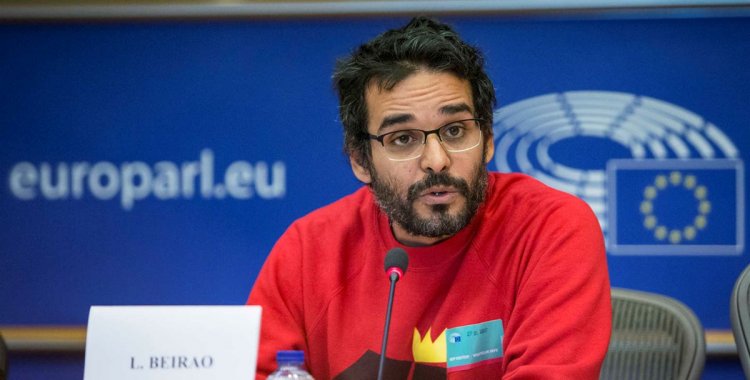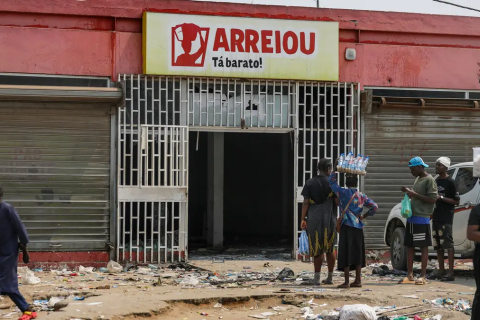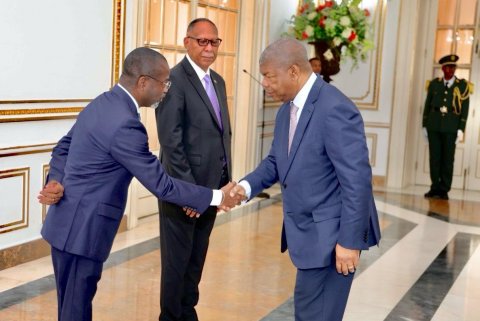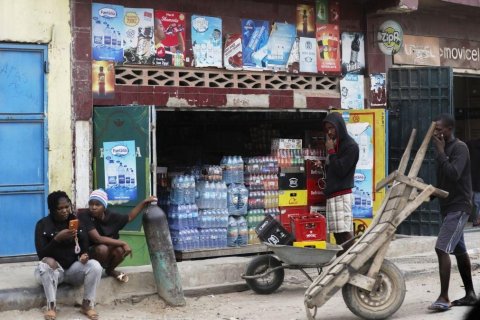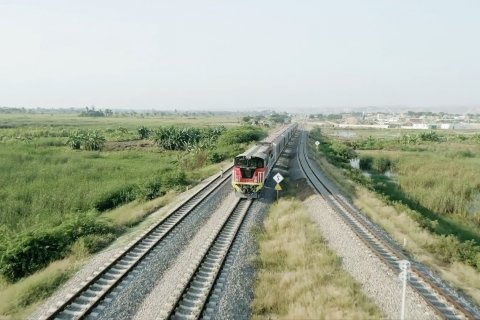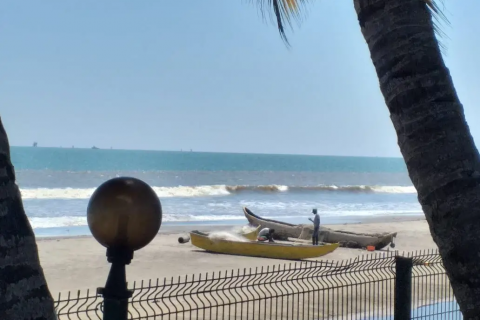"It will be a celebration of independence with repression. It is announced by the police commander, it is announced by the illegitimate prohibition of provincial governors," said the activist during the debate "Dipanda 45 years ... what now?", Organized by the International Association of Social and Human Sciences in Portuguese (AILPcsh) and by the Laboratory of Social Sciences and Humanities of the Catholic University of Angola (LAB-UCAN), carried out in a virtual way.
During the past few days, several provincial governments, including the one in the capital, Luanda, have banned demonstrations scheduled for Wednesday, the 45th anniversary of Angola's independence.
On the 24th of October, a march called by a group of activists was strongly repressed by the police and ended with the arrest of more than a hundred protesters, including journalists, who have since been released.
Luaty Beirão admitted that the younger generations "no longer have the patience to put up with political dinosaurs". "Young people no longer have the patience to put up with political dinosaurs who think they have legitimacy because they walked in the woods and gave us independence. They have our applause for that, but they have been mismanaging us for 45 years," said the Portuguese activist- Angolan.
"They have our applause for this, but they have been managing us badly for 45 years, and it is natural that people who were born less than 20 years ago will not have this trauma that is constantly being tried to evoke to keep people obedient, quiet and that don't get involved in matters ", underlined Luaty Beirão.
For economist Sérgio Calundungo, from the Political and Social Observatory of Angola, the youth protests result from the "search for a dream that was proclaimed, promised in 1975, but that has not yet arrived".
"I believe that part of this sense of demand, of protest, has to do with a question: if before 1975 there was a generation of utopia, now there are many young people who are not willing to be part of the autopsy generation. The generation of utopia had an ideal and knew what was needed for the dreamed country to occur ", said the economist.
Calundungo said that Angola celebrated for 45 years "the historic event" that took place on November 11, 1975, but did not stop "to think" about the teachings of that date, in particular that "independence is not equal to freedom".
"We were determined to maintain our sovereignty, but we were very disunited, and that, in my view, had a very big burden that continues to this day," he said.
Luaty Beirão compared Angola to "a child who was only allowed to smile for two years".
"At the end of the second year of existence as a happy child, she was subjected to shock therapy. It was an awakening to a very violent reality. Angola was abused as a teenager and today, before middle age, she is almost a depressed adult," she said. the activist, who dubbed the state as "the country of false starts, trauma and hopelessness".
Professor Cristina Pinto also participated in the debate, moderated by Cesaltina Abreu and Catarina Gomes, from LAB-UCAN.

